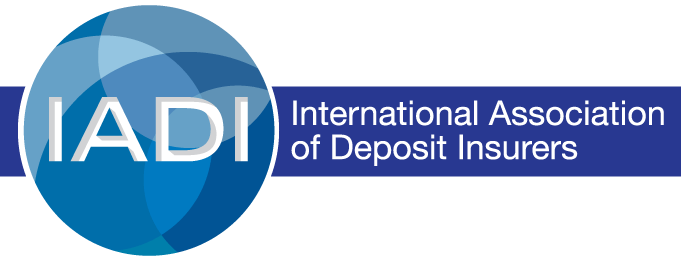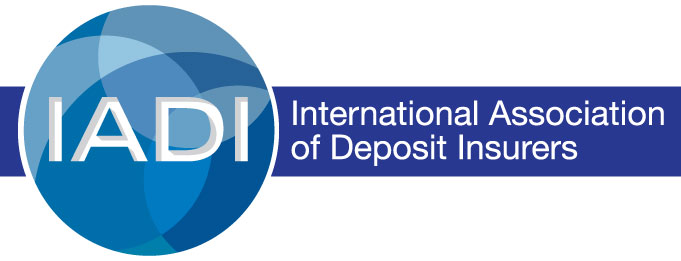Advancing Deposit Insurance: Strengthening Trust and Stability through the Revised IADI Core Principles
Opening Remarks by Mr Alejandro López, President of IADI and Chair of the Executive Council, during the IADI Core Principles International Conference organised by the International Association of Deposit Insurers (IADI) and hosted by the Central Deposit Insurance Corporation (CDIC) – Chinese Taipei.
Good morning, distinguished colleagues,
It is an honour to welcome you to the International Conference on the IADI Core Principles here in Taipei. I would like to begin by expressing my deep gratitude to our host, the Central Deposit Insurance Corporation, for their excellent organisation and for providing us with this space for dialogue and collaboration.
I would also like to warmly welcome all our guests, especially Jean Pierre Sabourin, former Chair of the Executive Council and the first President of IADI, whose visionary leadership helped lay the foundations of what we have built together.
Today, we gather as a global community to discuss, promote, and share the IADI Core Principles for Effective Deposit Insurance Systems. These principles are far more than a technical standard: they represent a common language that unites us, a global benchmark that guides our systems, and a shared commitment to protecting depositors and maintaining financial stability.
Since their creation in 2009, the Core Principles have enabled us to assess the effectiveness of deposit insurance systems, identify gaps, and promote good practices. The 2014 revision aligned them with the Key Attributes for Effective Resolution Regimes, reinforcing their relevance.
Today, they form part of the FSB’s Compendium of Standards, alongside references such as the Basel Core Principles. This is no coincidence: in more than three-quarters of the jurisdictions assessed by the IMF and the World Bank, the IADI Core Principles have served as a central guide for strengthening depositor protection.
Since 2009, 24 new deposit insurance systems have been established inspired by these standards. Today, we represent 108 members across nearly 100 jurisdictions. This demonstrates both the global impact of our work and the collective value of our shared knowledge.
The revision we present today is not a technical exercise; it is a necessary response to a financial system in constant transformation.
The banking turmoil of 2023, the most significant episode of systemic stress since the global financial crisis, offered profound lessons. For this reason, the Core Principles have been updated with four strategic objectives:
First, to integrate a comprehensive view of the financial safety net, ensuring smooth cooperation among supervision, resolution, and deposit insurance functions.Second, to strengthen coordination with resolution authorities, enabling efficient responses aligned with public policy objectives.Third, to incorporate aspirational criteria, such as expedited reimbursement and differential premium systems, raising the bar for best practices.And fourth, to future-proof our standards, by addressing advances in business continuity, cybersecurity, and communication in the digital era.
But beyond these technical refinements, we must acknowledge that the banking business has changed profoundly since the first edition of these standards. The speed at which financial services are evolving forces us to ask what events might trigger the need for future comprehensive reviews.
The Core Principles must remain flexible enough to adapt to disruptive change, while maintaining the prudence gained from the collective experience of our 109 members and those who will join us in the future. Striking this balance between responsiveness and soundness is one of our greatest challenges as a global community.
The concept of business continuity introduced in this revision should not be understood as guaranteeing the survival of a failed bank, but rather as ensuring that the system is prepared to protect deposits effectively.
It is about preserving trust in the financial system by ensuring that depositors are not denied their legitimate expectation of maintaining access to their savings, while avoiding the establishment of an unrestricted or blanket guarantee.
Experience shows that once trust is lost, it is rarely recovered. This challenge becomes even greater in a world where financial systems based on technological platforms are proliferating, attracting supporters with the promise of efficiency and low costs, but often lacking solid regulatory frameworks.
Without effective supervision, without clear resolution mechanisms, and without deposit guarantee schemes, the risk to depositors is enormous.
Our mission is clear: to safeguard the credibility of the financial system. The revised Core Principles are an essential tool for maintaining public confidence, even in the face of technological innovation and financial disruption.
I am pleased to announce that the IADI Executive Council has approved the revised Core Principles. We will present them to our members in the near future, and they will be one of the central themes of our upcoming Annual General Meeting in Lisbon.
But our work does not end here. Starting in 2026, we will publish an updated Assessment Handbook, providing detailed guidance to evaluators and reinforcing the effective implementation of the Core Principles.
We will also continue supporting our members through training programmes, technical assistance, and institutional strengthening initiatives, ensuring that these standards are not just written on paper but actively shape the reality of deposit insurance systems around the world.
Colleagues, the revised Core Principles represent a collective milestone: they embody the lessons of the past, address the challenges of the present, and prepare us for the risks and opportunities of the future.
I encourage you to participate actively in the discussions, share your experiences, and work together to build a framework that ensures deposit insurance systems remain resilient, effective, and trustworthy in an increasingly dynamic and complex world.
Protecting deposits is not only a technical task; it is about safeguarding public trust, defending financial stability, and ensuring that no one loses the security of their savings.
Thank you very much.

